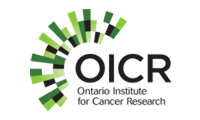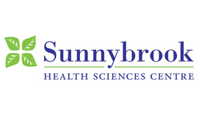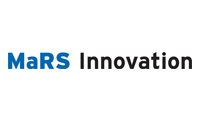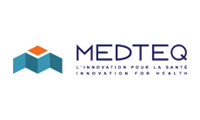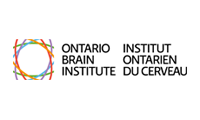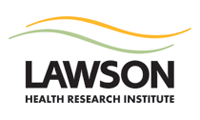KalGene Pharmaceuticals
Project Overview:
KalGene Pharmaceuticals' innovations in the discovery, development, and commercialization of novel Alzheimer's disease therapeutics can fundamentally improve patient treatment, quality of life, and disease management with profound social and economic impact across the globe.
The National Research Council of Canada (NRC) has granted KalGene Pharmaceuticals an exclusive worldwide license for a therapeutic molecule against Alzheimer's disease. The molecule targets amyloid beta plaques, which are abnormal clusters of protein fragments that build up between brain nerve cells. These clusters are considered prime suspects in the development and progression of Alzheimer’s disease.
KalGene believes that coupling the NRC’s molecule with its proprietary carriers could enable the development of a disease modifying drug to fight Alzheimer’s. The conjugated therapy has already shown promising results in Alzheimer’s disease models.
KalGene Pharmaceuticals will continue advancing the treatment’s development through preclinical testing and eventual human trials.
Need or Opportunity:
Currently, there is no treatment or cure for Alzheimer’s disease. Therefore, preventing disease progression remains a critical unmet need for millions of people in Canada and worldwide.
Today, an estimated 747,000 Canadians and 5.3 million Americans are living with Alzheimer’s disease and other dementias. Within a generation, it is estimated that 1.1 million Canadians will be living with Alzheimer’s or related dementia, and the direct cost of caring for people living with the disease will total $153 billion in Canada alone. In the U.S., it is estimated that 13.8 million people aged 65 and older will have Alzheimer's disease by 2050, costing an estimated $1.1 trillion.
While Alzheimer’s disease is a complex condition, toxic amyloid is widely believed to be the precursor to the neuronal degeneration that causes dementia and death. The therapeutic molecule from the NRC selectively binds to the toxic form of amyloid and reduces the amount remaining in the brain.
Delivering drugs to targets in the brain is significantly impeded by the tightly sealed walls of brain vessels, known as the blood-brain barrier (BBB). NRC’s carrier molecules, sometimes described as Trojan horses, leverage a mechanism known as receptor-mediated transcytosis, a natural process that allows vital nutrients to pass through the BBB and to sneak therapeutics into the brain. These novel BBB carriers have been characterized in pre-clinical models, but the Trojan horse concept for delivery of therapeutics into the human brain has not yet been confirmed.
Solution:
This complex project is a multi-stage and multi-year undertaking that is harnessing the expertise of a world-class Canadian team. KalGene is working with collaborators to test the NRC’s conjugated therapeutic and prove its efficacy, moving it closer to human testing and eventual clinical use.
To assist with the evaluation of the therapy KalGene is leveraging the Centre for Imaging Technology Commercialization’s (CIMTEC) extensive technology development skills and its connections to clinician-scientists and academic institutions. While CIMTEC is developing an algorithm to automatically quantify amyloid-beta, the suspected cause of Alzheimer’s disease, the Montreal Neurological Institute is providing best-in-class human imaging to demonstrate that the blood-brain barrier carrier is effective at delivering compounds to the brain.
Progress:
KalGene Pharmaceuticals secured $1.5 million in financing from Brain Canada, CQDM, and the Ontario Brain Institute Focus on Brain program to develop the treatment for Alzheimer’s.
KalGene and the NRC signed an agreement in October 2016 worth over $1M to develop, scale up, and transfer the technology needed to manufacture this promising Alzheimer’s treatment in Canada.
The clinical trials, with Canadian Alzheimer's patients, which are expected to get underway in 2017 will be conducted at the Montreal Neurological Institute and Hospital (McGill University). CIMTEC will continue to provide brain imaging services throughout this study.

